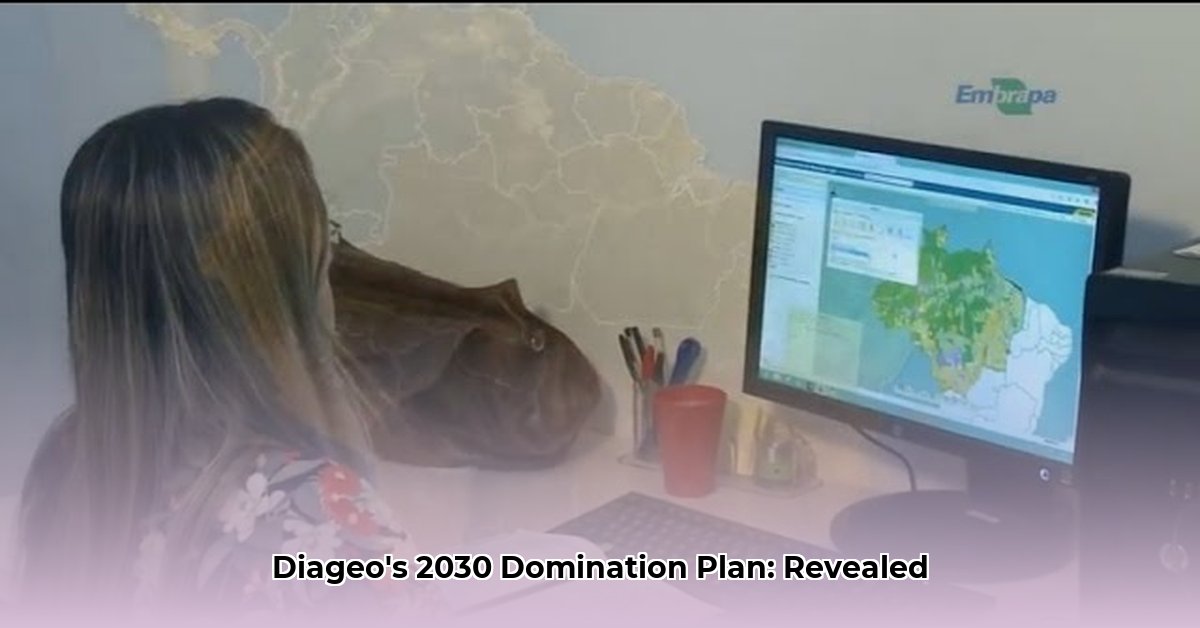
Diageo's Premium Push: A Strategic Deep Dive
Diageo, a global leader in alcoholic beverages, is aggressively pursuing dominance in the premium spirits market by 2030. This isn't merely about increasing prices; it's a multifaceted strategy built on brand elevation, sustainable practices, and shrewd market navigation. The company's success hinges on its ability to capitalize on shifting consumer preferences towards higher-quality, experience-driven products while mitigating significant risks.
Navigating the Premium Landscape: Challenges and Opportunities
Diageo’s premiumization strategy faces several headwinds. Inflationary pressures increase production costs, potentially impacting consumer affordability. However, Diageo is proactively reinvesting profits to bolster brand strength and fortify its supply chain resilience. This approach aims to mitigate disruptions and maintain market share in an increasingly competitive environment. "Diageo's ability to navigate this complex landscape will be central to achieving its 2030 ambition," notes Dr. Anya Sharma, Professor of Marketing at the University of London's Cass Business School.
But the path to 2030 isn’t solely about weathering storms. The global demand for premium spirits presents a significant opportunity. The growth rate of Diageo's premium and super-premium spirits significantly outpaces the overall market, demonstrating a clear trend. Brands like Don Julio Tequila exemplify this success, experiencing substantial market share expansion. Does this rapid growth remain sustainable? That's the critical question.
Beyond the Bottle: Sustainability and Ethical Sourcing
Diageo's commitment to sustainability extends beyond marketing rhetoric. Their DRINKiQ program, reaching over one billion people with responsible consumption messages, underscores this dedication. The company is investing heavily in reducing its environmental footprint across its entire supply chain, from ingredient sourcing to bottling. This proactive approach addresses growing consumer concerns about ethical production and environmental responsibility. However, maintaining this commitment while balancing profitability presents a substantial challenge. "Consumers are increasingly discerning about the ethical and environmental credentials of the brands they choose," states Mr. David Miller, Sustainability Consultant at the Ethical Consumer Group. "Diageo's success depends on a truly holistic approach to sustainability."
Global Reach: Brand Power and Market Adaptability
Diageo’s portfolio of globally recognized brands, including Johnnie Walker, provides a diversified revenue stream, mitigating regional market fluctuations. This global reach, however, necessitates continuous adaptation to evolving consumer preferences in diverse markets. The company's success rests on its ability to innovate and maintain its competitive edge in dynamic global markets. "Adapting to local tastes and preferences while maintaining brand consistency is a significant challenge," explains Ms. Sarah Chen, Senior Analyst at Global Market Insights. "Diageo's ability to perform this balancing act will be crucial for long-term success."
A Strategic Roadmap to 2030: Mitigating Risks and Maximizing Opportunities
Diageo faces significant risks in its pursuit of market dominance. These include:
Fierce Competition: High likelihood, High impact. Mitigation: Continuously innovating products and marketing strategies, solidifying brand loyalty.
Government Regulations: Medium likelihood, High impact. Mitigation: Engaging with regulators and maintaining strict adherence to all regulations.
Supply Chain Disruptions: Medium likelihood, Medium impact. Mitigation: Diversifying sourcing and investing in resilient supply chains.
Evolving Consumer Preferences: Medium likelihood, Medium impact. Mitigation: Comprehensive market research and agile adaptation to changing tastes.
Climate Change Effects: High likelihood, High impact. Mitigation: Implementing robust sustainability initiatives and efficient resource management.
Diageo’s Premium Strategy: A Recipe for Success?
Diageo's ambitious 2030 goals require a holistic approach. Achieving market leadership necessitates maintaining premium market share, adapting to evolving regulations, and creating a truly sustainable supply chain. The company’s current progress is encouraging, but the journey ahead is fraught with both challenges and opportunities. Their ability to successfully balance profit with responsible business practices and adapt to changing marketplaces will determine their success in the long run. The ongoing evolution of consumer preferences and increased sustainability concerns will continue to shape the strategy in the coming years.